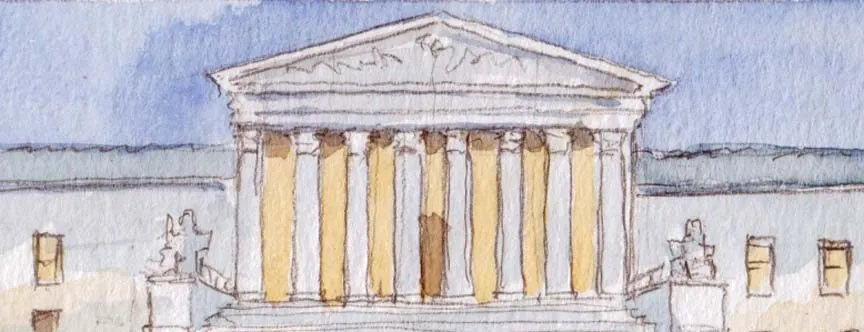Justices block enforcement of subpoena for Trump financial records

on Nov 25, 2019 at 7:11 pm

Ten days ago lawyers for President Donald Trump asked the Supreme Court to temporarily block a decision by the U.S. Court of Appeals for the District of Columbia Circuit that upheld a subpoena for Trump’s financial records. Today the justices granted that request, at least until the president’s lawyers file a petition for review of the D.C. Circuit’s decision. The move provides a reprieve for Trump for now, and it likely sets the stage for a broader showdown over the subpoena early next year, with a decision to follow by late June.
The House Committee on Oversight and Reform issued the subpoena at the center of the dispute in April of this year. As part of its investigation into government ethics and conflicts of interests in the executive branch, which it says includes “the accuracy of statements made by President Trump on various financial disclosures,” the committee sought financial documents and records from Mazars, which has long served as Trump’s accountant.
The president went to federal court in Washington to try to block Mazars from turning over the documents. He contended that the subpoena did not serve a legitimate legislative purpose and therefore went beyond Congress’s authority, but both the district court and the D.C. Circuit rejected that argument.
With the D.C. Circuit’s ruling slated to go into effect last Wednesday, Trump went to the Supreme Court last week, asking the justices to put the lower court’s ruling on hold to give him time to file a petition for review. Trump complained that if the D.C. Circuit’s ruling is not overturned, Congress will be able to seek all kinds of personal information from the president at any time, simply by citing the possibility of new laws on the same topic.
And in the short term, Trump continued, there won’t be a case for the Supreme Court to review later if the justices don’t put the D.C. Circuit’s ruling on hold now, because the committee will enforce the subpoena as soon as the ruling goes into effect. Once Mazars turns his financial records over to the committee, Trump asserted, his confidential information will inevitably be disclosed, which is “the quintessential type of irreparable harm that cannot be compensated or undone by money damages.”
Last week the Supreme Court issued what is known as an “administrative stay” – it put the D.C. Circuit’s ruling on hold to give it time to decide Trump’s request. On Thursday, the House filed its brief opposing Trump’s request to block the D.C. Circuit’s decision. The House stressed that there is no reason for the justices to intervene in the dispute, particularly when an impeachment inquiry is now underway. Even if the Supreme Court were to eventually grant review and reverse, the House suggested, the House could simply issue a new subpoena. “There is no need for this Court to make definitive pronouncements on the scope of Congress’s powers in a case in which its ruling will be so limited in application and consequence.” Allowing the president to “stall any Congressional subpoena to which he objects through the months or years that it takes for a challenge” to wind its way through the courts would “radically” impair the ability of the House of Representatives – which operates in two-year terms – to “conduct oversight or to collect information about the Executive Branch.”
The House added that, if the justices did opt to grant Trump’s request, it should expedite both the filing and consideration of Trump’s petition for review to allow the justices to resolve the dispute this term. Trump should be required to file his petition for review by December 2, the House told the justices, and the justices should consider the case at their private conference on December 13.
This evening the justices put the D.C. Circuit’s decision on hold until the president can file, and the justices can rule on, a petition for review. The justices instructed the president to file that petition by noon on December 5. If the petition is granted, the order explained, the D.C. Circuit’s ruling will remain on hold until the justices rule on the merits of the case. If the president does not file a petition by December 5, or if the petition is filed but denied, the D.C. Circuit’s decision will go into effect, allowing the House to enforce the subpoena. Although the order did not say so specifically, that schedule will presumably allow the justices to grant review and hear oral argument on the merits during the current term, with a decision to follow by late June.
This post was originally published at Howe on the Court.


